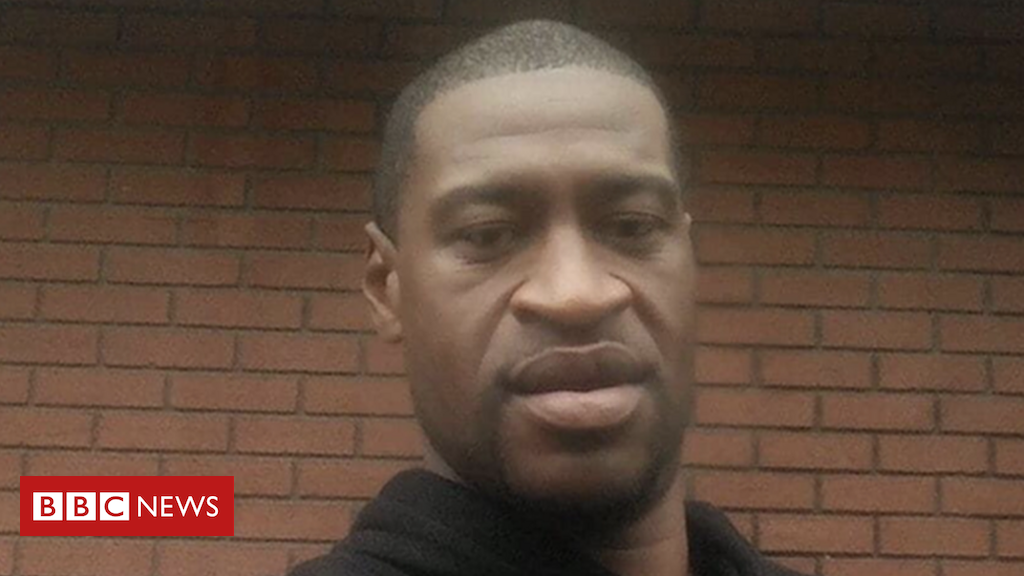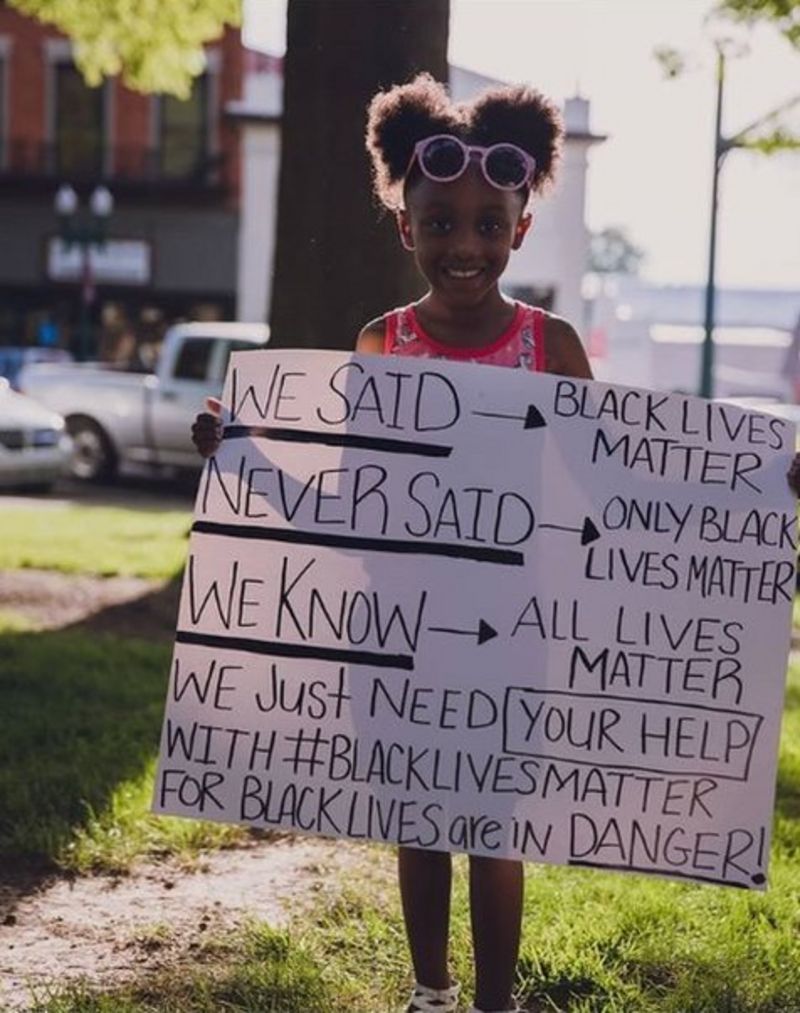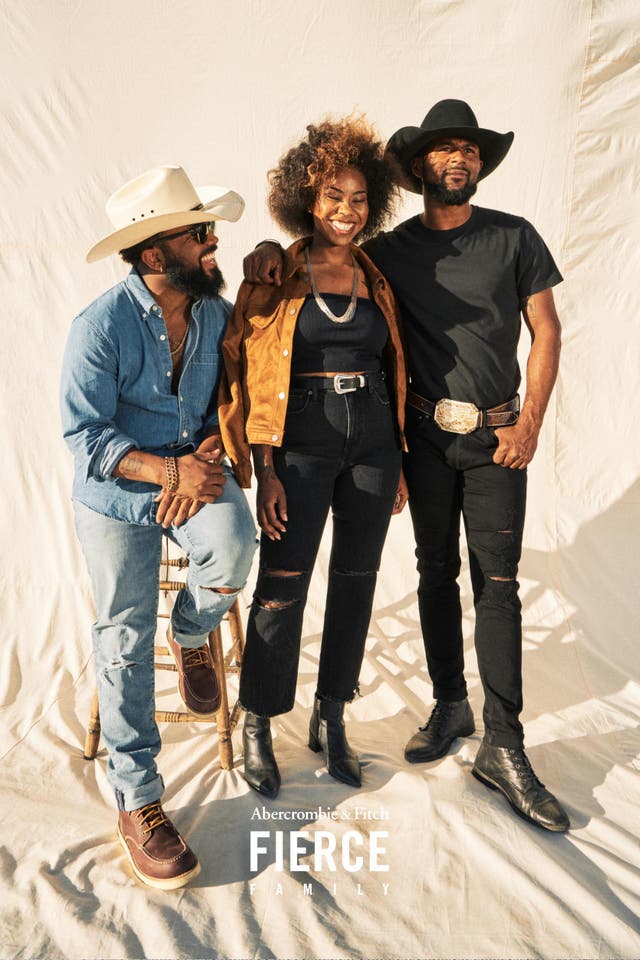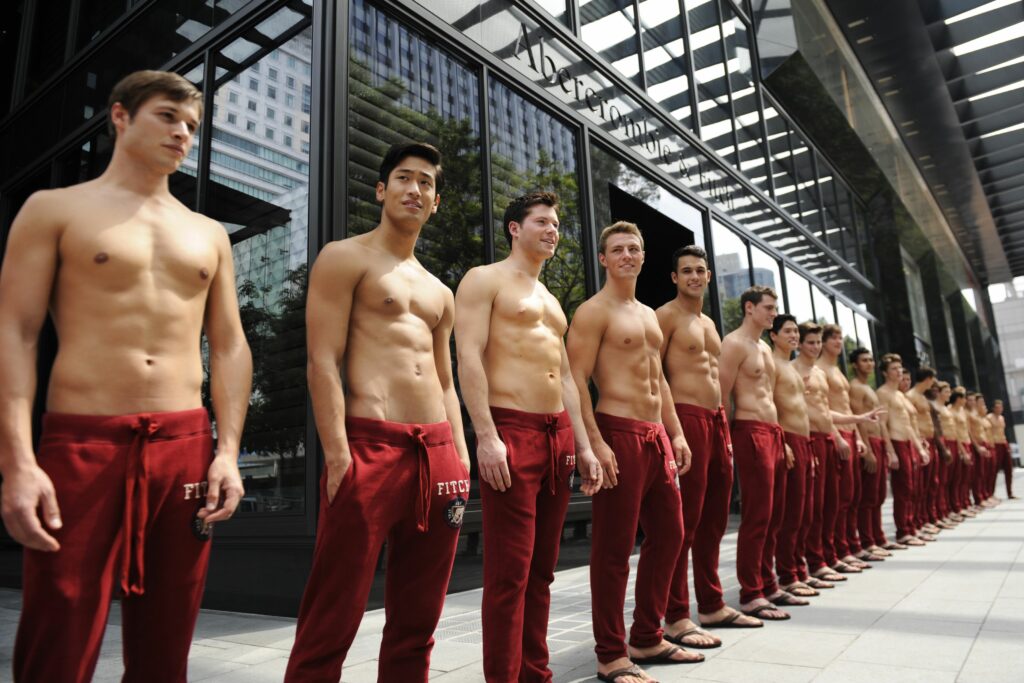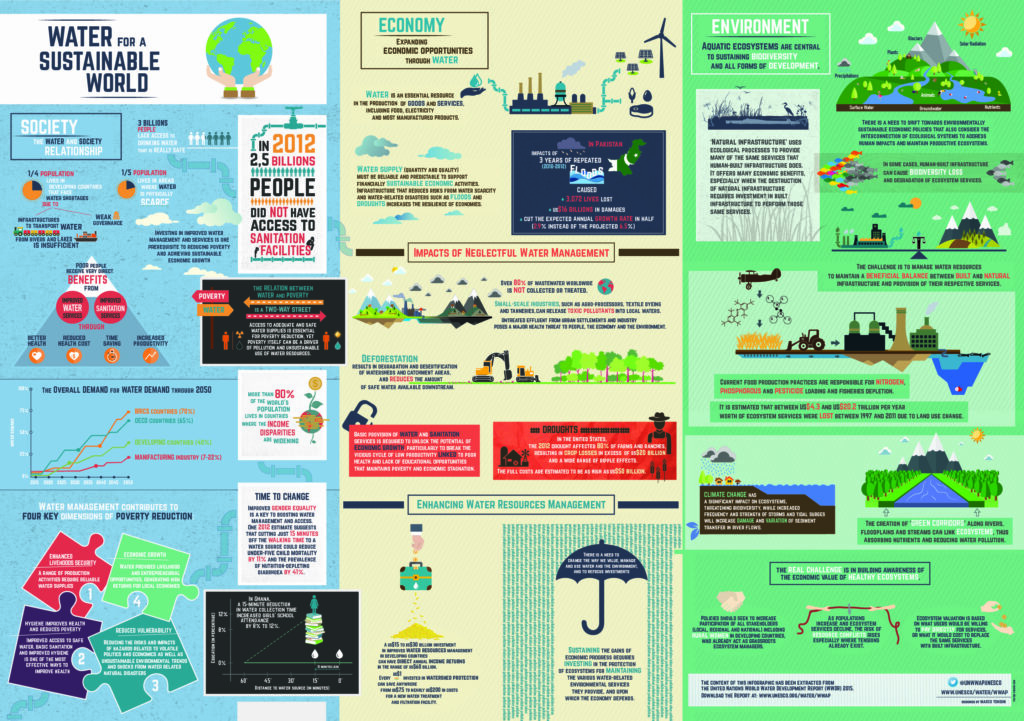
When we talk about sustainability and the environment, people often assume its only about recycling and fuel emissions, however people don’t realise important water and the wastage of water is. Water is a finite and irreplaceable resource that is fundamental to human well-being. It is only renewable if well managed. Today, more than 1.7 billion people live in river basins where depletion through use exceeds natural recharge, a trend that will see two-thirds of the world’s population living in water-stressed countries by 2025. Water can pose a serious challenge to sustainable development but managed efficiently and equitably, water can play a key enabling role in strengthening the resilience of social, economic and environmental systems in the light of rapid and unpredictable changes (United Nations 2021). The united nations have a poster with many water statistics, here are a few of them;
- 3 billion people have no access to safe drinking water.
- 1/5 of the population live where water is physically scarce.
- In 2012, 2.5 billion people did not have access to sanitation facilities.
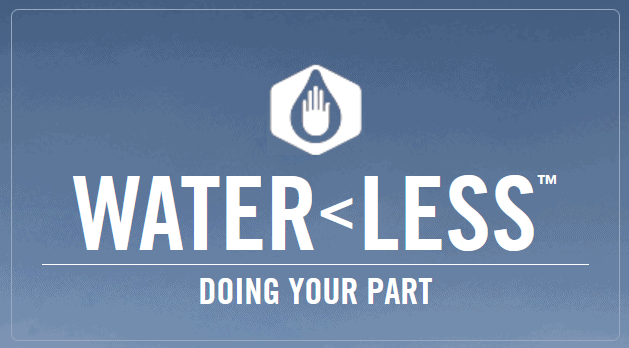
Levis are a world known clothing brand, famous for their jeans. When It comes to sustainability, Levis take a different approach, instead of pretending to do an awful lot of eco-friendly activities. Levis do not pretend like they are part of movements or brands that are big on being environmentally focused, instead, they actively put money into bettering their marketing for the hashtag ‘doingyourpart’. Sometimes, being honest with consumers is better than lying about being sustainable. The hashtag ‘doyourpart’, is very effective because it implies you do not have to completely change your lifestyle to help be more sustainable, it’s about making small steps and changes. Levis is quite frank when they straight up say; change your habits. Use less water and please don’t wash your jeans every week – it’s absolutely fine to wait a couple of weeks between every time you do the laundry (Sustainability matters 2020). Levis launched a campaign encouraging people to adapt to a waterless lifestyle, to experience how much of a daily struggle it is for people who do not have access to clean and safe drinking water. To go with this, Levis launched a waterless jeans collection, to highlight the fact that an average pair of jeans uses 42 litres of water in the finishing process and Levis have already reduced this by 96% (Water Org 2021)! Vice president of the Levis brand states that “we’re excited about the results we’ve achieved so far, and we know we can make an even bigger impact by applying this innovative thinking to other aspects of our production process. Sometimes, the way to achieve a more sustainable design is to rethink a traditional process and find a way to do it better”, (Water Org 2021).
People in more than 1300 cities across the world took part in the Levi water challenge, here are some of the accomplishments;
- 1207 people actively showered less.
- 1850 pairs of jeans were not washed.
- 715 taps went untouched.
- 1374 water bottles were reused.
- 1.82 billion litres were provided.
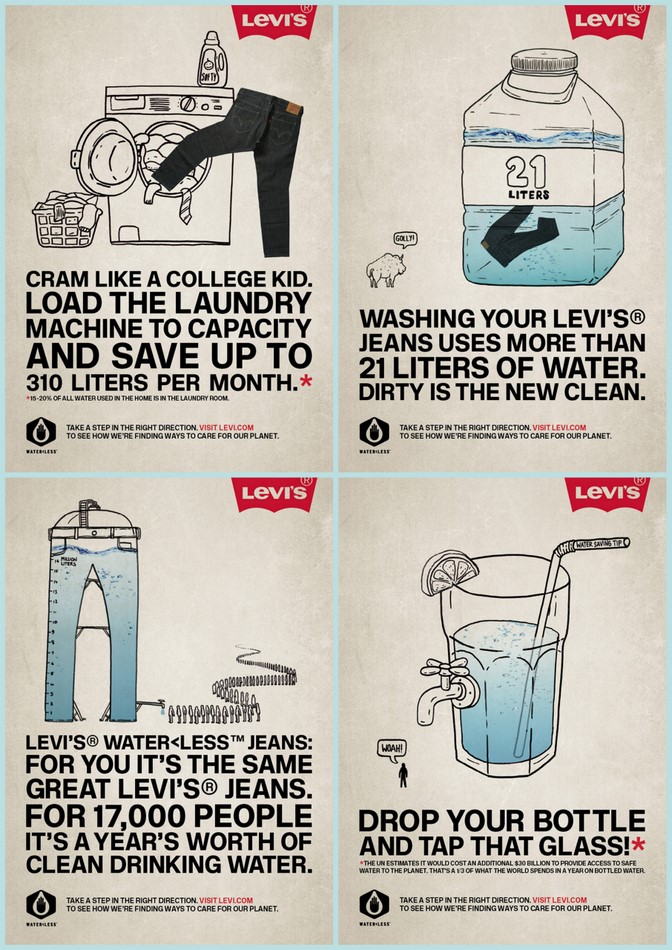
Water is a basic human need and there are many people living without it, even worse, drinking water, which is dirty and unsafe, which could lead to numerous health issues. Many of these people consuming this type of water are young children, who need clean and safe water to be able to grow and live happily. Because we are not in this situation, we often forget how lucky we really are. In the UK especially, we take something as simple as clean water for granted. Not only for health reason, but for hygiene water is important too, for example, a very normal thing for woman to go through is getting her period. A country where there are no sanitation facilities, can make it very unhygienic and unsafe for females to deal with that safely. Little by little, one by one, small steps and changes can have a huge impact on the world. If every person in the world took one small change, combined would be a whole lot of change, do your part.
- References
- Fill your well, 2021. Levis waterless jeans. [image] Available at: <http://fillyourwell.blogspot.com/2011/05/good-deeds-levis-waterless-jeans.html> [Accessed 6 May 2021].
- United Nations, 2021. Water sustainability. [image] Available at: <https://www.un.org/waterforlifedecade/images/Infographic_light_01.jpg> [Accessed 5 May 2021].
- Water.org. 2021. Levi’s® Water<Less Campaign | Water.org. [online] Available at: <https://water.org/about-us/news-press/levis-waterless-campaign/> [Accessed 5 May 2021].

